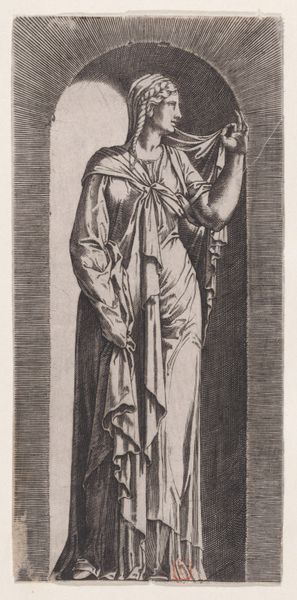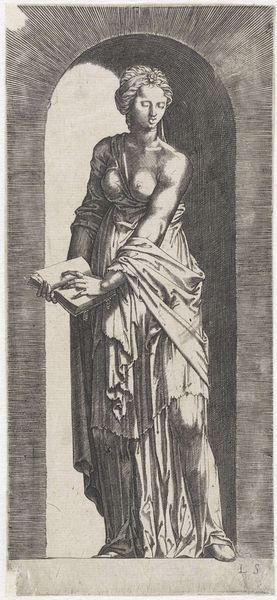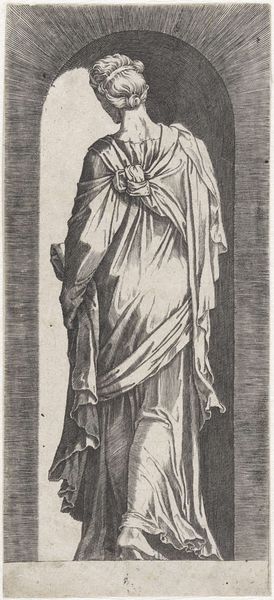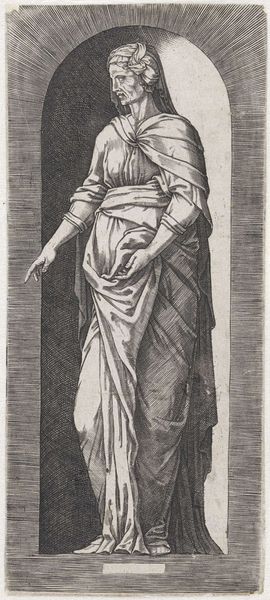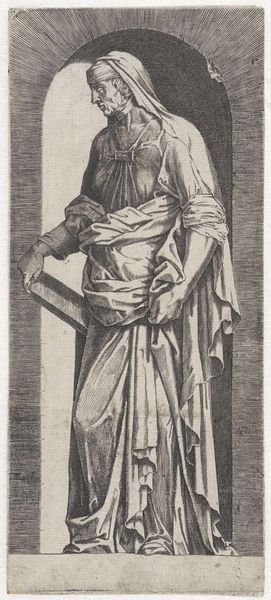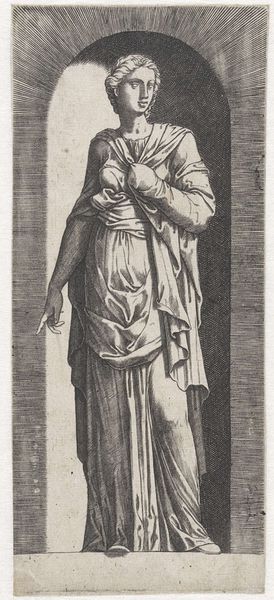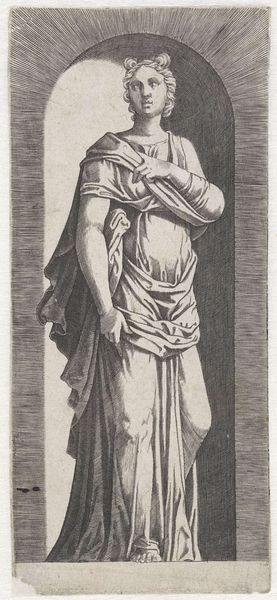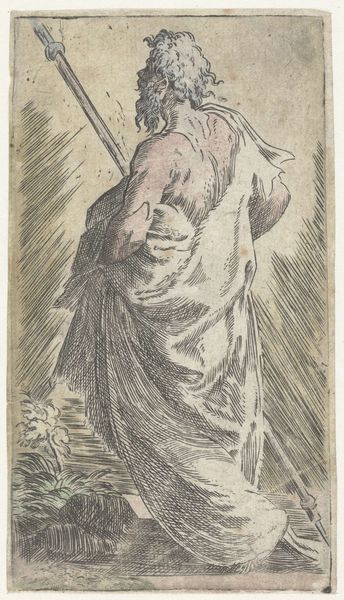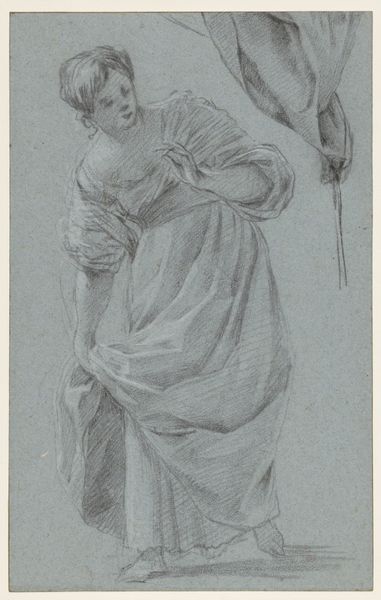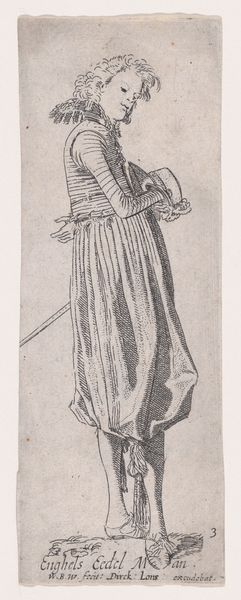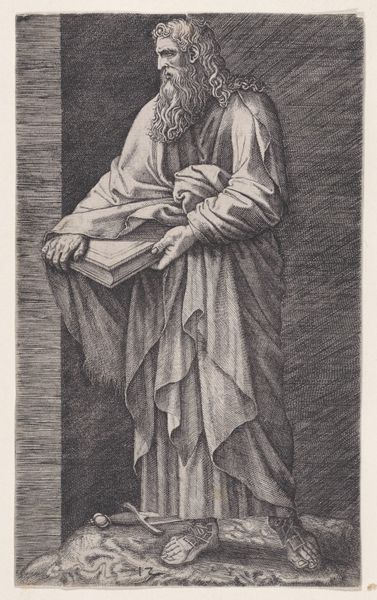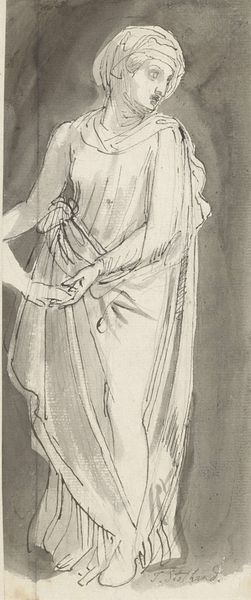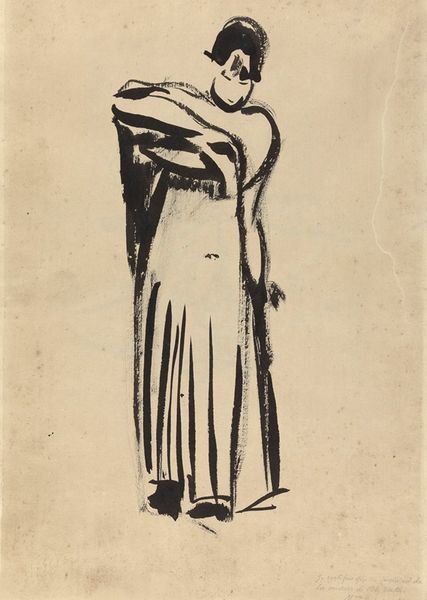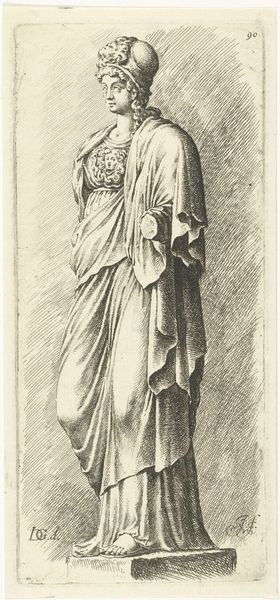
print, engraving
# print
#
mannerism
#
figuration
#
form
#
line
#
history-painting
#
nude
#
engraving
Dimensions: height 187 mm, width 84 mm
Copyright: Rijks Museum: Open Domain
This is Lambertus Suavius's engraving of a Sibyl, made in the mid-16th century. The figure is viewed from behind, framed by an arched doorway. Sibyls were prophetesses in the Ancient World, and they experienced a Renaissance revival alongside classical art and literature. But what does it mean to represent a prophetess from behind? We are denied her gaze and her face is obscured. It is a curious choice, perhaps a commentary on the nature of prophecy itself, which is veiled in mystery and open to interpretation. The print was likely made in the Netherlands, and it reflects the region's engagement with classical themes but also a certain distance from the Italian Renaissance. The artist's use of engraving, a printmaking technique, allowed for the wider distribution of images, shaping visual culture beyond the elite circles of painting. Understanding this work requires that we look into the history of the Sibyls, the role of classical learning in the 16th century, and the development of printmaking as a new medium. The meaning of art always depends on its historical and institutional context.
Comments
No comments
Be the first to comment and join the conversation on the ultimate creative platform.
